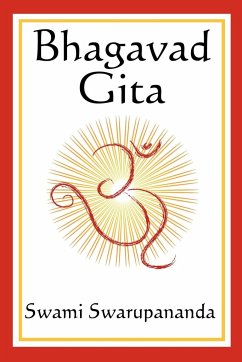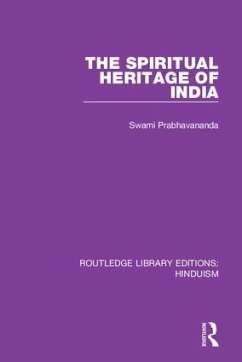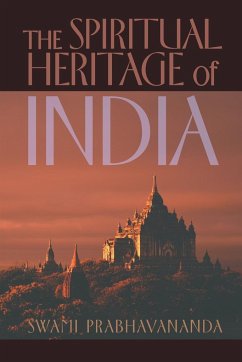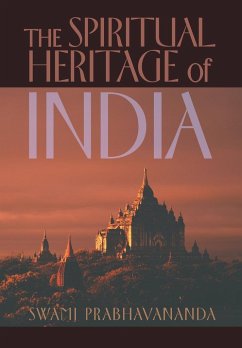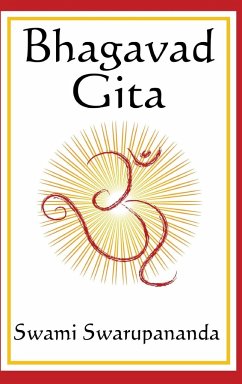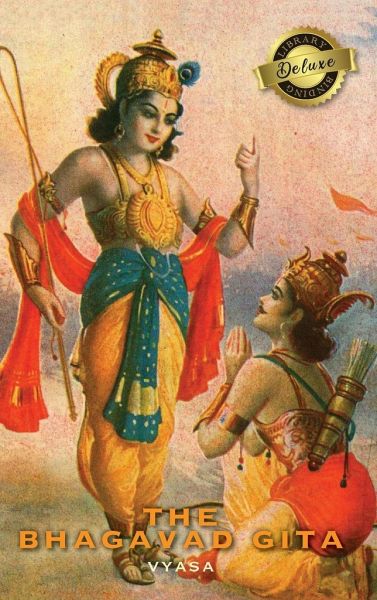
The Bhagavad Gita (Annotated) (Deluxe Library Edition)
Versandkostenfrei!
Versandfertig in 1-2 Wochen
29,99 €
inkl. MwSt.
Weitere Ausgaben:

PAYBACK Punkte
15 °P sammeln!
The Bhagavad Gita is a dialogue between Pandava prince Arjuna and his guide and charioteer Krishna. At the start of the Dharma Yudhha (righteous war) between Pandavas and Kauravas, Arjuna is filled with moral dilemma and despair about the violence and death the war will cause. He wonders if he should renounce, and seeks Krishna's counsel, whose answers and discourse constitute The Bhagavad Gita. Krishna counsels Arjuna to fulfill his Kshatriya (warrior) duty to uphold the Dharma through "selfless action." The Krishna-Arjuna dialogue covers a broad range of spiritual topics, touching upon ethic...
The Bhagavad Gita is a dialogue between Pandava prince Arjuna and his guide and charioteer Krishna. At the start of the Dharma Yudhha (righteous war) between Pandavas and Kauravas, Arjuna is filled with moral dilemma and despair about the violence and death the war will cause. He wonders if he should renounce, and seeks Krishna's counsel, whose answers and discourse constitute The Bhagavad Gita. Krishna counsels Arjuna to fulfill his Kshatriya (warrior) duty to uphold the Dharma through "selfless action." The Krishna-Arjuna dialogue covers a broad range of spiritual topics, touching upon ethical dilemmas and philosophical issues that go far beyond the war Arjuna faces. The Bhagavad Gita is the best known and most famous of Hindu texts, with a unique pan-Hindu influence. The Gita presents a synthesis of Hindu ideas about dharma, theistic bhakti, and the yogic ideals of moksha. The text covers jnana, bhakti, karma, and Raja Yoga incorporating ideas from the Samkhya-Yoga philosophy. The Gita's call for selfless action inspired many leaders of the Indian independence movement including Mahatma Gandhi who referred to it as his "spiritual dictionary."






